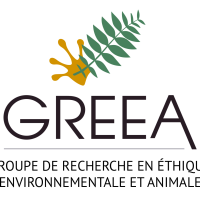
Balam Kenter (Concordia U.)
Balam Kenter, Concordia University, « Rendering Surplus, Rendering Flesh: Capitalism, Animals, and Disability »
Registration | Inscription : https://uqtr.zoom.us/meeting/register/tZEpcuyrpzwrGtdOXeRZmkIBw2rDnYQt7AWQ
Abstract | Résumé
The animal rendering industry and surplus populations are two features of capitalism that are both invisibilized as by-products, subject to logics of waste-management and recycling. Shukin’s (2009) genealogy of how animal life gets symbolically and carnally rendered capital, demonstrates the central role of animals in the reproduction of capitalist hegemony. Similarly, the paradox of surplus populations, another kind of bare life, is that they are redundant to capital while being absolutely essential to, and created by, it (Marx, 2000; Endnotes, 2010). 40 percent of the global workforce is currently rendered superfluous (Benanav, 2014). Most of this global surplus population is disabled (WHO, 2011; UN, 2015), showing capitalism to be a disabling power. Appreciating the centrality of rendering and surplus populations necessitates astute attention to the seemingly non-productive and/or non-labour-centric, but no less material, aspects of late capitalism that banks on rendering animal and human bodies as capital, perpetually cannibalizing its own waste, and turning all excess into surplus value. Utilizing insights from Critical Disability Studies and Critical Animal Studies, I offer an interdisciplinary consideration of surplus populations and animal rendering with the aim of better understanding the contradictions of the current phase of capitalism through pathologized and non-laboring bodies, both animal and disabled.



